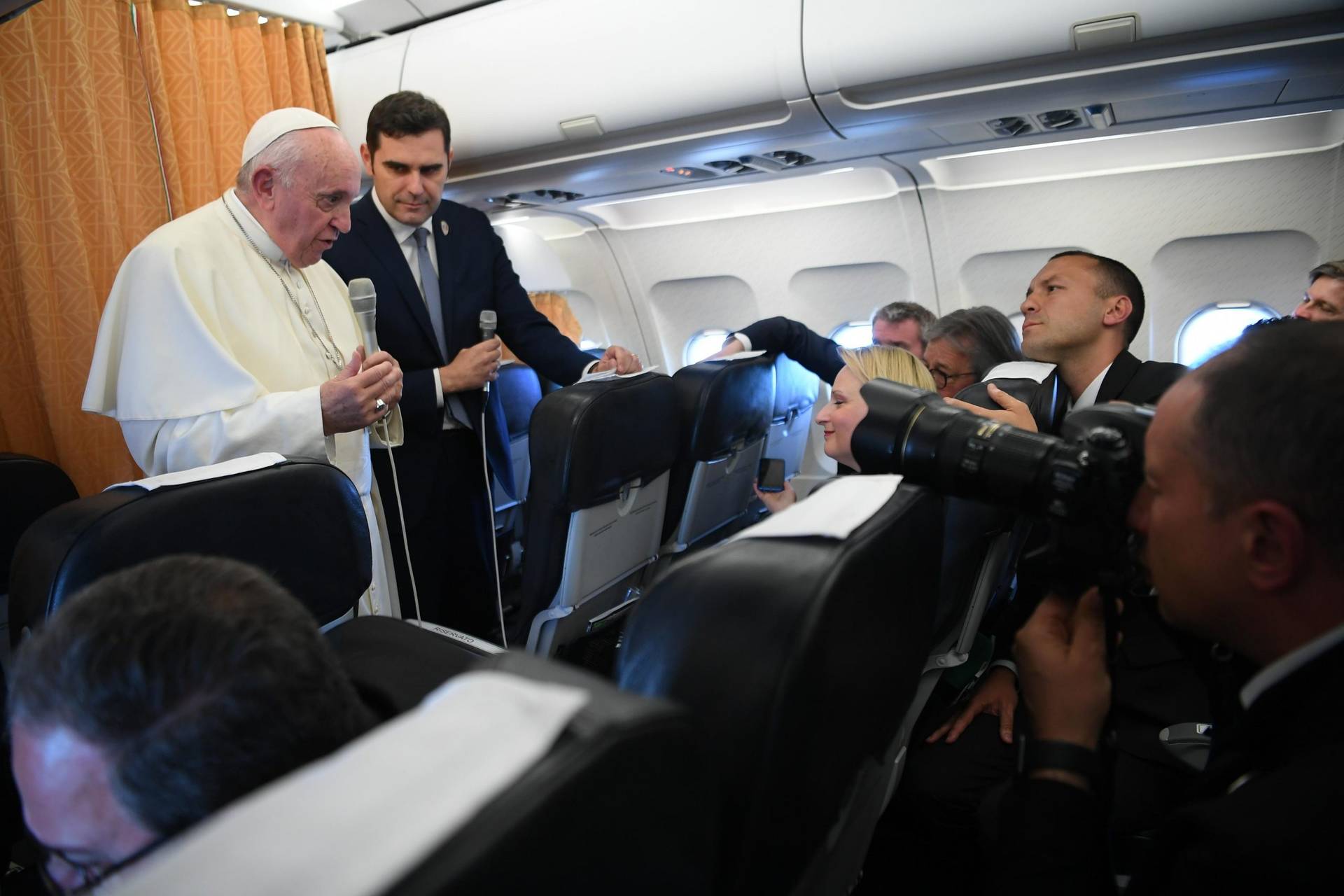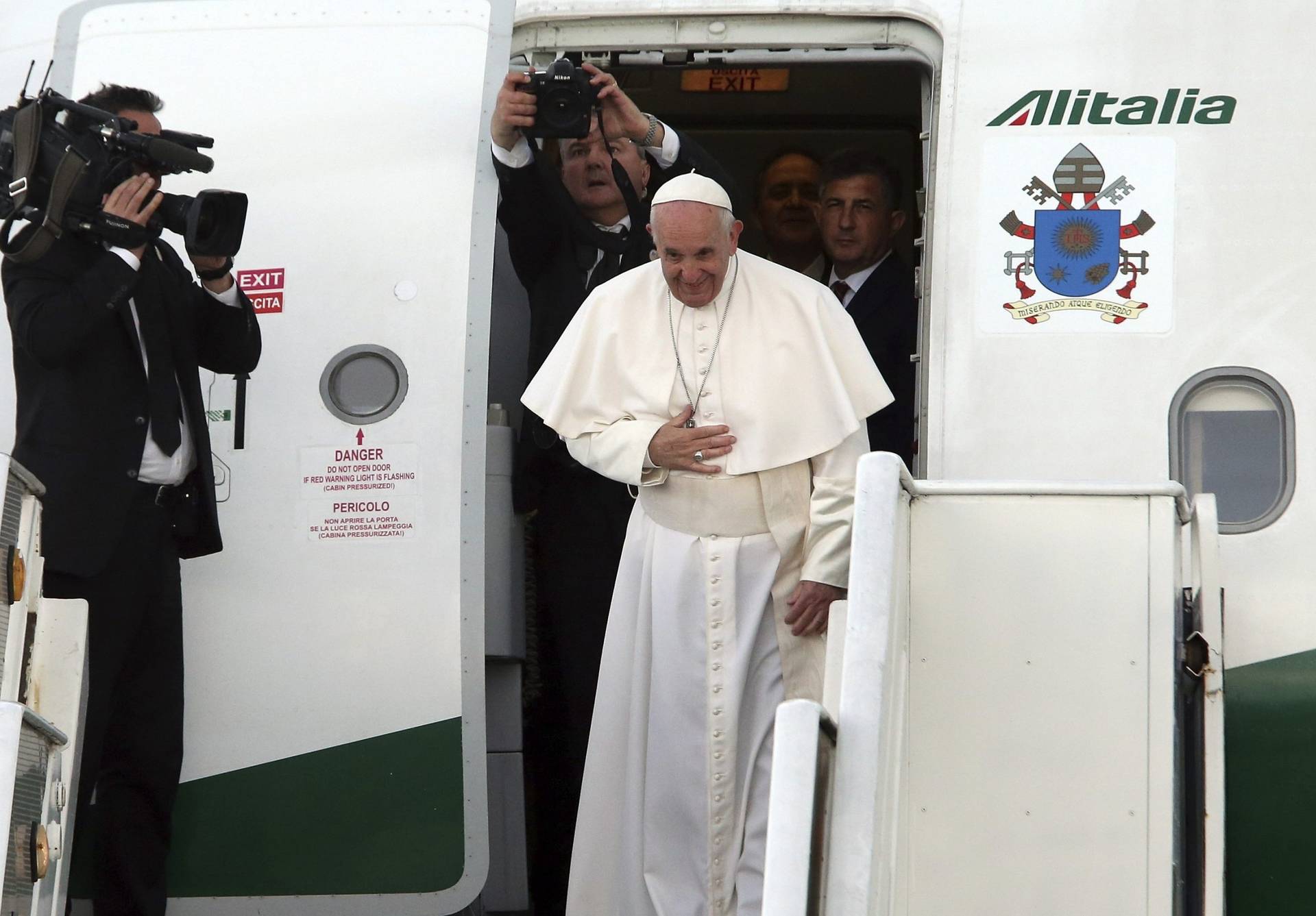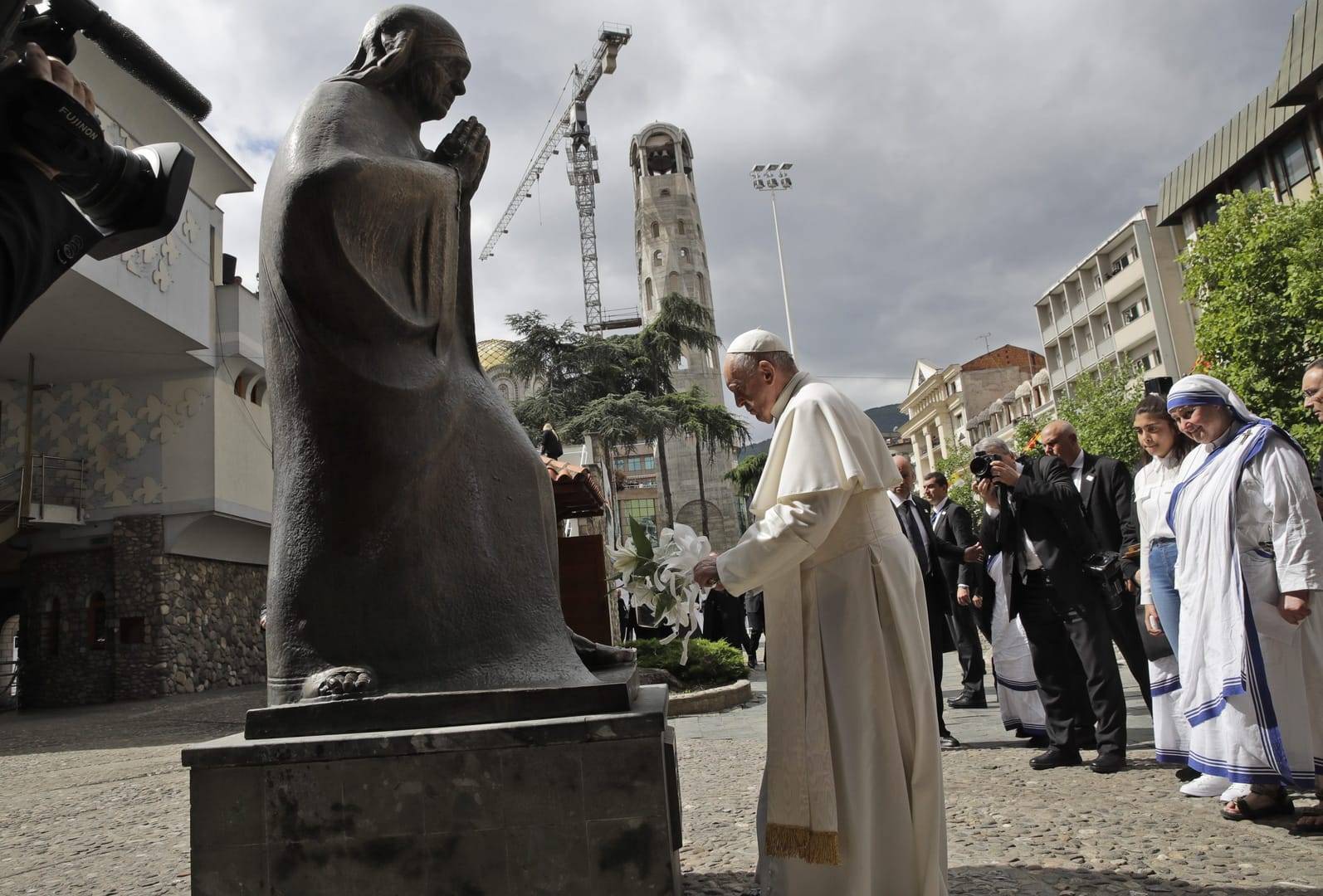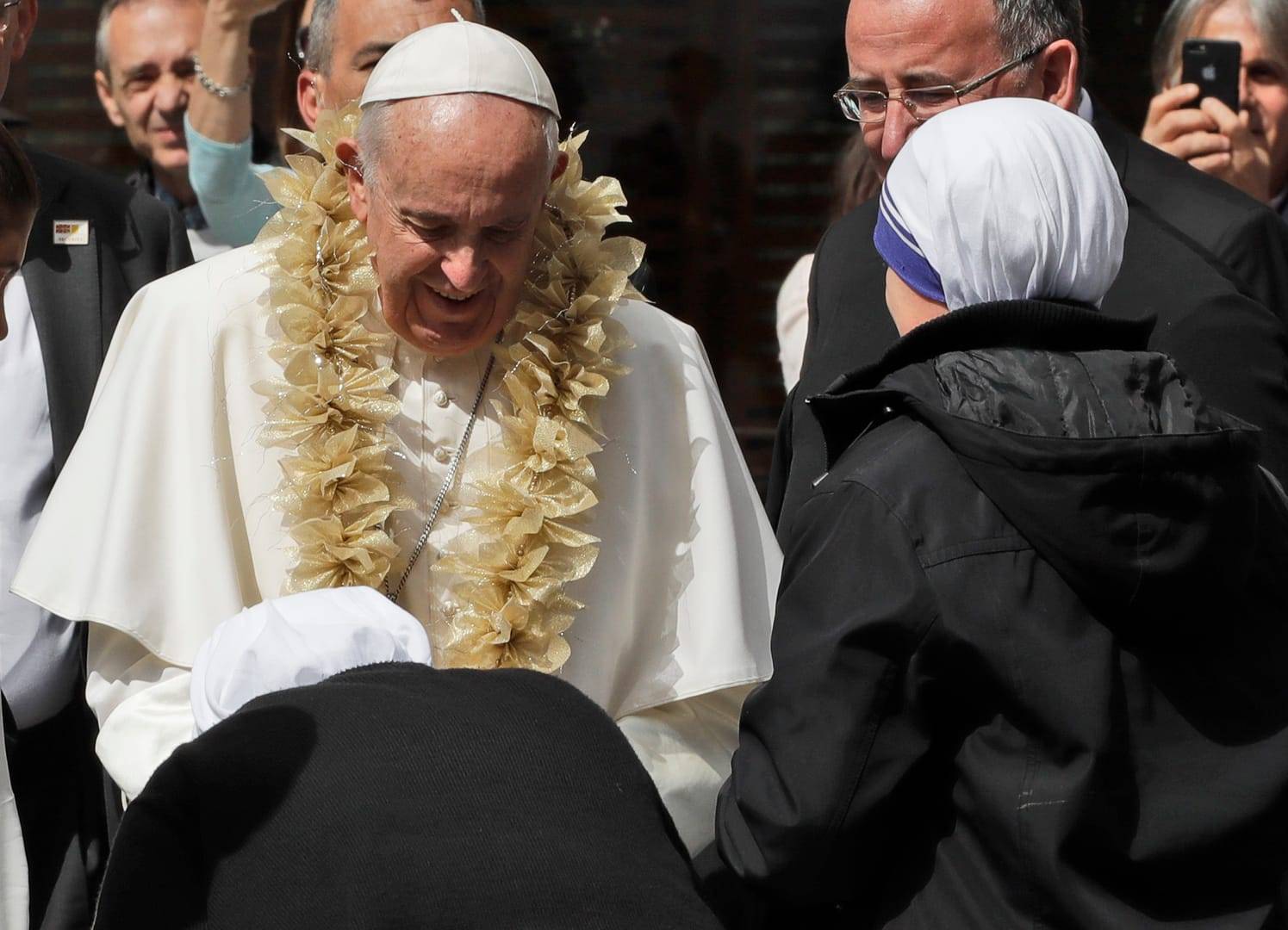SOFIA – In a country still feeling the sting of a communist era hostile to religion and infamous for its persecutions, the image of representatives from diverse religious communities home to many of the martyrs of that time coming together to pray for peace is something which, for locals, carries considerable weight.
That was the scene May 6 in Sofia, Bulgaria, during a prayer session led by Pope Francis and attended by members of the Orthodox, Jewish, Muslim, Armenian and Protestant communities. The pope told attendees that achieving peace “requires and demands that we adopt dialogue as our path, mutual understanding as our code of conduct, and reciprocal understanding as our method and standard.”
“In this way, we can focus on what unites us, show mutual respect for our differences, and encourage one another to look to a future of opportunity and dignity, especially for future generations,” he said.
During more than 40 years of communist rule in Bulgaria, Orthodox Christians were favored in exchange for submission to the state and a limitation of activities, while Catholics and other religious communities faced overt persecution. Properties were confiscated, clergy and faithful were imprisoned, harassed or even killed, and believers had few legal rights.
Bulgaria is a majority Orthodox nation with Catholics making up just 0.5 percent of the overall population of 7.1 million. Muslims in Bulgaria represent 12 percent, and there are only around 1,000 Jews, who faced heavy discrimination during World War II, including forced deportation and limited civil rights.
During his time as apostolic delegate in Bulgaria from 1925-1935, then-Father Angelo Roncalli, the future Pope Saint John XXIII, was a firm defender of the Jews, often shielding them from persecution.
One Armenian bishop was present, a Lutheran pastor, a Grand Mufti and a Jewish man, while the Orthodox, notably, had no clergy present, but were represented by a government minister in charge of religious affairs. Former Bulgarian king, the last reigning Bulgarian monarch, was also present in the square.
After lighting six torches brought by children from different religions and praying the traditional prayer for peace penned by his namesake, St. Francis of Assisi, Pope Francis said the saint was filled with a love “that changed his way of seeing things and helped him to realize that in everyone there is a flicker of light born of our personal certainty that, when everything is said and done, we are infinitely loved.”
This love is what allowed Saint Francis to become a peacemaker, the pope said, adding each person present was called to follow his steps and become “an artisan of peace,” which he said “is both a gift and a task; it must be implored and worked for, received as a blessing and constantly sought as we strive daily to build a culture in which peace is respected as a fundamental right.”
Pointing to the torches, Francis said they represent the fire of love that burns inside each person and which is “meant to become a beacon of mercy, love and peace wherever we find ourselves. A beacon that can cast light upon our entire world.”
“With the fire of love, we can melt the icy chill of war and conflict,” he said, and prayed that the voices of each of the representatives present would “blend in expressing our ardent desire for peace. Let there be peace on earth: in our families, in our hearts, and above all in those places where so many voices have been silenced by war, stifled by indifference and ignored due to the powerful complicity of interest groups.”
Saint Francis of Assisi’s prayer to God to “make me an instrument of your peace,” he said, is the same plea issued by John XXIII in his historic 1963 encyclical, Pacem in terris, meaning “peace on earth.”
This dream, Francis said, is “the dream of an earth where peace is always at home. Let us share in that aspiration…Let there be peace on earth to all those whom the Lord loves.”















